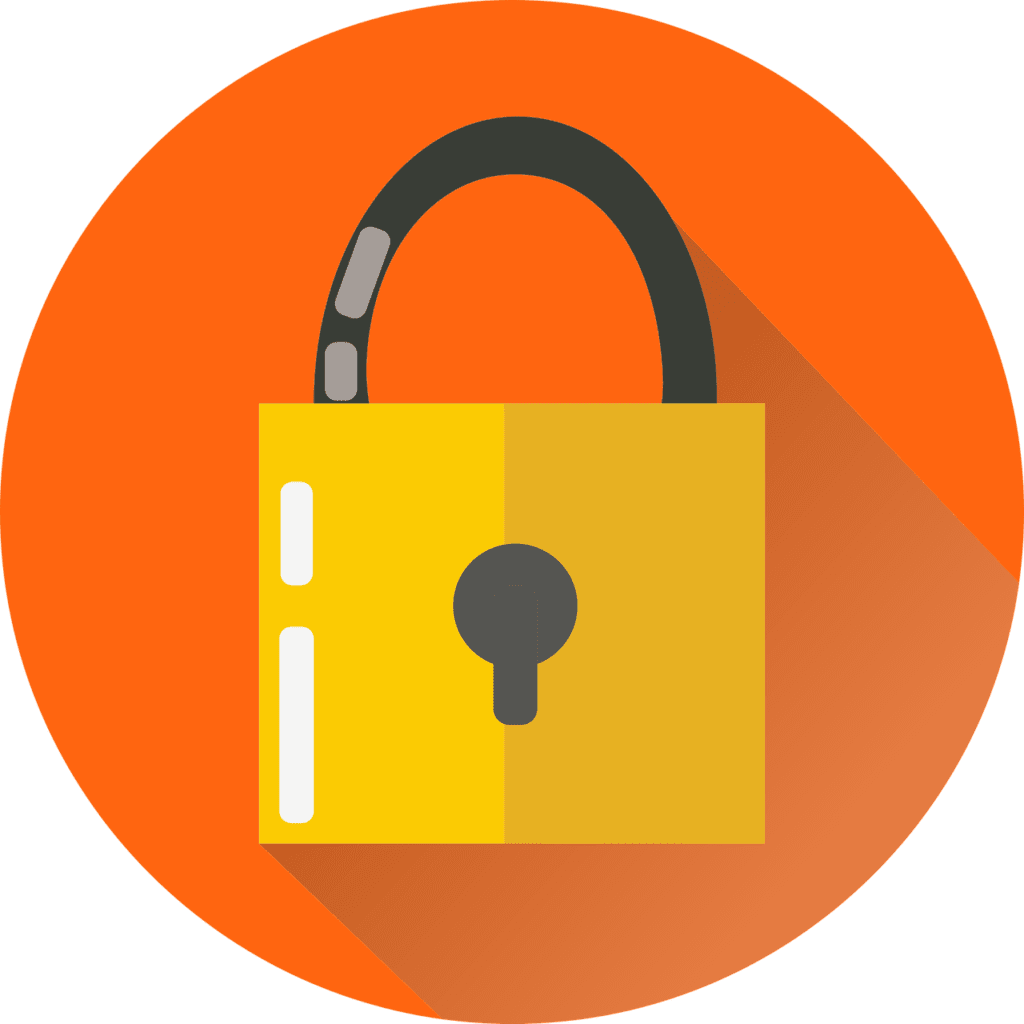Have you ever wondered which locks are the hardest to open? Whether you’re considering the security of your home, business, or vehicle, understanding the resilience of different locks can be incredibly useful. With so many options available in the market today, choosing the most secure lock isn’t just about opting for the most expensive one. It involves understanding the mechanisms, materials, and technologies that make some locks virtually impenetrable.
In this article, we’ll take you through the various types of locks, their complexities, and what makes them difficult to open. Silver Eagle Locksmith, the leading locksmith service in Las Vegas, NV, , MD, provides insight into this fascinating world of locks and security.

Types of Locks
understanding the different types of locks available is the first step in identifying which ones offer the highest level of security. Here are some common but complex types:
Deadbolt Locks
Deadbolt locks are incredibly popular in residential settings. Unlike spring bolt locks, they can’t be moved to the open position unless the correct key is inserted.
Single Cylinder Deadbolt
- Mechanism: Operated with a key on the exterior side and a thumb turn on the interior side.
- Security Level: High
- Common Usage: Residential front doors
Double Cylinder Deadbolt
- Mechanism: Needs a key for both sides of the door.
- Security Level: Very high, as it prevents the lock from being opened even if someone breaks a nearby window and tries to turn the thumb latch.
- Common Usage: Doors with glass panels
Electronic and Smart Locks
With advancements in technology, electronic and smart locks have become more widespread. These use digital technology to provide keyless entry.
Keypad Locks
- Mechanism: Requires a numerical code to unlock.
- Security Level: High, as no traditional key can be copied.
- Common Usage: Apartments, offices
Biometric Locks
- Mechanism: Uses fingerprint or iris recognition for locking and unlocking.
- Security Level: Very high due to biometric data, which is hard to replicate.
- Common Usage: High-security areas, luxurious homes
High-Security Locks
High-security locks offer additional features that enhance their resistance to tampering.
Medeco Locks
- Mechanism: Uses complex key cuts and pin tumbler systems with sidebar locking.
- Security Level: Extremely high, nearly impossible to pick.
- Common Usage: Commercial properties, secure facilities
Mul-T-Lock
- Mechanism: Multi-dimensional pin cylinders.
- Security Level: Extremely high, offers restricted keyways making duplication very difficult.
- Common Usage: Banks, government buildings
Factors Making a Lock Hard to Open
Locks vary not only in their basic type but also in how resistant they are to different tampering techniques. Here are some factors that contribute to a lock’s difficulty of being opened:
Mechanism Complexity
The more intricate the internal mechanics, the harder it is to pick or break the lock. Locks with multiple pins, sidebar, and other additional security measures tend to be harder to tamper with.
Material Strength
The material used in constructing the lock plays a significant role in its resistance to physical attacks. High-quality steel or hardened materials are much tougher to drill through or break.
Keyway Design
The design of the keyway itself can make a lock harder to pick. Restricted keyways, commonly found in high-security locks, prevent the insertion of picking tools altogether.
Anti-Pick Features
Many high-security locks come with anti-pick features such as spool pins or mushroom pins, which make the traditional lock picking techniques ineffective.
Anti-Drill Features
Reinforced plates or additional pins that are designed to resist drilling are often part of more secure locks. Such features ensure that even with power tools, the lock remains intact.
Additional Technologies
From smart locks that alert you on your smartphone when tampered with to those using biometrics, additional technologies make unauthorized access nearly impossible.

Vulnerabilities and How to Mitigate Them
No lock is completely impervious, but understanding common vulnerabilities and taking countermeasures can significantly increase security.
Lock Picking
Lock picking involves manipulating the components of a lock without the key. While traditional locks are susceptible, high-security locks with complex pin configurations can mitigate this risk.
Bumping
Lock bumping uses a specially crafted key that exploits the lock’s mechanism to open. High-quality locks, especially those with restricted or custom keyways, are less likely to be affected.
Drilling
Drilling attacks focus on destroying the lock’s mechanism to gain access. Reinforced plates and anti-drill pins are effective countermeasures.
Key Duplication
Key duplication can be a straightforward way for someone to gain unauthorized access. Locks with restricted or patented keyways offer a valid layer of protection, as duplicating such keys is challenging.
Physical Attacks
From brute force to more sophisticated methods, physical attacks aim to break or bypass the lock entirely. High-strength materials and additional protective features are essential in thwarting these attempts.
Choosing the Right Lock for Your Needs
Selecting the right lock depends on various factors, including the type of property, the level of security required, and your budget. Here’s a breakdown to guide your decision:
| Property Type | Recommended Lock Type | Security Features |
|---|---|---|
| Residential (Standard) | Single Cylinder Deadbolt | High-quality materials, anti-pick features |
| Residential (High-Security) | Double Cylinder Deadbolt | Anti-drill, complex keyways |
| Office | Keypad Lock | Keyless entry, audit trail |
| Commercial High-Security | Medeco, Mul-T-Lock | Restricted keyway, advanced pin mechanisms |
| High-Security Facilities | Biometric Locks | Fingerprint or iris recognition, instant alerts |
| Vehicle | Advanced Car Lock Systems | Encrypted key fobs, immobilizers |

Benefits of Professional Locksmith Services
Opting for professional locksmith services can provide an added layer of security and peace of mind. Silver Eagle Locksmith offers expertise and a range of services tailored to different security needs. Here’s what you can expect:
Consultation and Assessment
Expert locksmiths will analyze your specific needs and recommend the most secure locks for your property. This ensures you get the best combination of security features within your budget.
Professional Installation
Proper installation is crucial for a lock’s effectiveness. Professional locksmiths have the skills and tools to install locks correctly, ensuring maximum security and longevity.
Maintenance and Upgrades
Regular maintenance can identify potential vulnerabilities before they become issues. Professionals can also recommend and install the latest security upgrades as technology advances.
Emergency Services
Should you ever find yourself locked out, or in need of urgent lock repair, professional locksmiths provide fast and reliable help. Silver Eagle Locksmith’s emergency services ensure you’re never stranded.
Real-World Applications: Case Studies
Understanding the practical application of these secure locks can offer additional insight. Here are some real-world examples where the choice of complex locks protected assets and lives.
Case Study: Securing a High-End Boutique in Las Vegas, NV
Challenge: A high-end boutique in Las Vegas needed robust security to protect valuable merchandise.
Solution: Silver Eagle Locksmith recommended and installed Medeco high-security locks paired with a comprehensive surveillance system.
Outcome: The boutique has experienced zero security breaches since the installation, significantly reducing potential insurance claims and loss.
Case Study: Enhancing Office Security in , MD
Challenge: A mid-sized office in faced repeated unauthorized entries.
Solution: Keypad locks with audit trail features were installed to track access and ensure only authorized personnel could enter.
Outcome: Unauthorized entries were eliminated, and the company now has a clear audit trail for accountability.
Case Study: Upgrading Residential Security in a Suburban Neighborhood
Challenge: A homeowner wanted to upgrade their outdated locking system due to increased neighborhood burglary rates.
Solution: The installation of a double cylinder deadbolt and an additional smart lock for heightened security.
Outcome: The homeowner reported a sense of increased security, and no break-in attempts have been successful since the upgrade.
Conclusion
Choosing a lock is about more than just selecting from a range of options. It involves knowing the intricacies of how different locks function, the vulnerabilities they might have, and the advancements in technology that make some of them nearly impenetrable. Whether you’re looking to secure your home, office, or vehicle, understanding these details can make all the difference.
When in doubt, consulting with professionals like Silver Eagle Locksmith can provide the expertise necessary to ensure optimal security. They not only offer a wide range of services tailored to different needs but also provide the peace of mind that comes with knowing your security is in expert hands.
So, next time you ponder over which lock to choose, think about the factors discussed herein. Your security – and peace of mind – are worth the effort.
For more information, visit Silver Eagle Locksmith.
